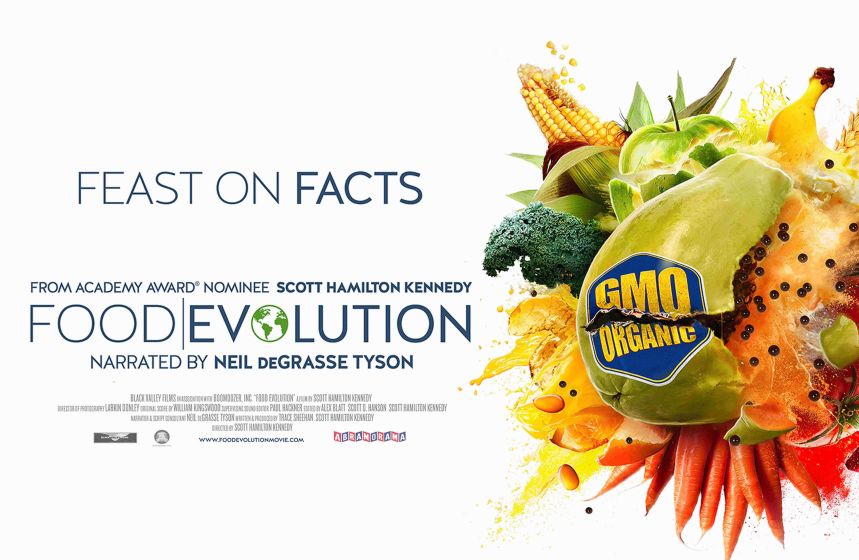
In spring 2016, the National Academies of Science, Engineering and Medicine released a comprehensive report on genetically engineered food and crops. The conclusion of the report was that, after reviewing hundreds of scientific papers written on the subject, there was "no substantiated evidence that foods from genetically engineered (GE) crops are less safe than foods from non-genetically engineered crops."
The report neglected one important point though; it didn't address the emotional feeling people have to when it comes to genetically modified organisms (GMOs) in foods, concentrating only on empirical evidence.
A new documentary, Food Evolution looks at both the human reaction and the science around genetically engineered foods. Airing at the Metro Theatre on Sept. 12, this film seeks to find the balance between scientific knowledge and human bias.
"How do we make the most informed decisions about how we feed ourselves?" asks narrator Neil deGrasse Tyson, a well-known science communicator and astrophysicist, which audience members are invited to reflect on during the film, and discuss with the panel of scientists and community members on both side of this debate.
Vic Adamowicz is the vice-dean of the Faculty of Agricultural, Life and Environmental Sciences (ALES). The faculty is the sponsor and host of this free screening.
"Sustainably produced, safe, and healthy food is a key component of our faculty's research programs," he says. "As a science faculty we are advocates for the use of the best available, rigorously reviewed, scientific information on all aspects of food including policy design and consumer decision making.
"We are also aware that it is difficult to obtain the latest research and challenging to untangle the various messages that consumers, producers, and policy makers face each day. Thus we felt that providing a venue and opportunity for balanced discourse would help inform the community of the latest research findings around food, as well the continuing research questions and challenges."
"As researchers, we often focus on the content -- data, results, etc. -- and ignore how the content is delivered," says Henry An, associate professor in the Department of Resource Economics and Environmental Sociology who specializes in the economics of agriculture food and agribusiness. "More information isn't always better, and I think a movie like this can be a more effective way engage the public about an important issue."
Ellen Goddard, professor and co-operative chair, Agricultural Marketing and Business, is one of the panelists that will be available to answer questions after the film.
"GMOs and food receive an enormous amount of attention in traditional and social media, focused largely on potential long term risks to human health and the environment," she says. "The realized and potential benefits receive much less attention often to the frustration of dedicated farmers and scientists who are sincerely attempting to deal with human health challenges (eg. vitamin A enrichment) and environmental problems growing in intensity (drought or pest resistance, for example).
"This documentary provides information on the whys and hows of GMO development, in different contexts (dealing with the banana crisis in Africa, for example), to shed some light on aspects of the technology that normally receive little attention.
"Our faculty, as a science-based faculty dealing with food and agricultural issues, has a responsibility in teaching and outreach," says Goddard, "to encourage the dissemination of information and debate to enhance societal depth of understanding."
Academy-award nominee Scott Hamilton Kennedy directs this not-rated 92-minute film. Sponsored by the Faculty of Agricultural, Life and Environmental Sciences, admission is free, although food donations to the Campus Food Bank will be gratefully accepted on site. For attendees, there will also be free popcorn.